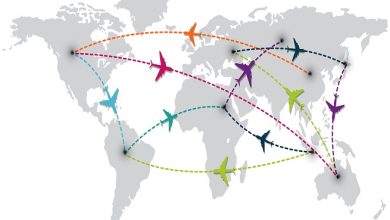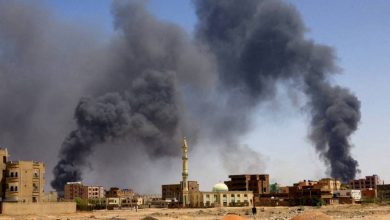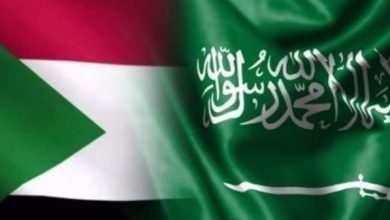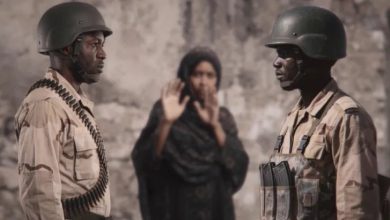What are the Significances of Washington’s Response to Khartoum’s Demands regarding Geneva Talks? (Sudan Events ) interrogates experts and politicians
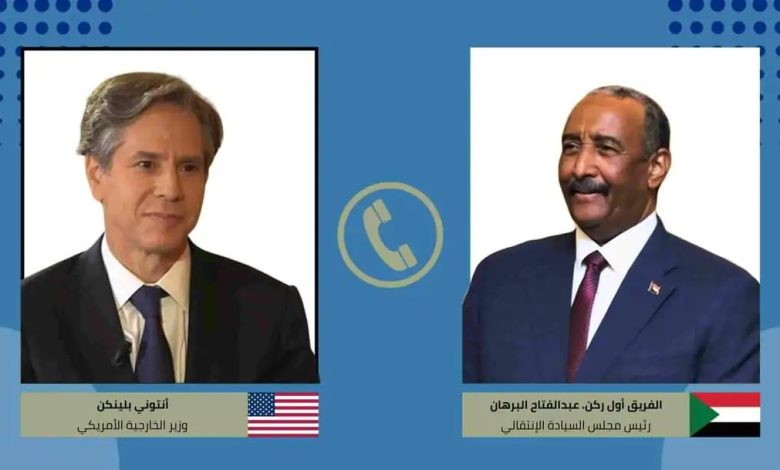
Al-Shaabi: US lost the war and is looking for another option after the entry of Russia and Iran
National Umma : Washington is interested in the success of the negotiation round, so it is dealing positively with the observations of the armed forces SAF
Democratic Unionist: Sudan began the process of engineering international relations, which prompted Washington to change its position
International expert: Sudanese foreign policy forced US to change its policy towards the country
Former media attaché at the Khartoum embassy in Washington: The cohesion of the SAF and the people is behind the change in the American position
A few days separate us from the date of the talks that the United States of America USA called for, both the Sudanese Armed Forces SAF and the Rapid Support RSF Militia, to discuss the crisis that the country is going through in the Swiss city of Geneva, which was set for the fourteenth of this August, but the SAF has not yet responded to the American invitation, while the Sudanese Foreign Ministry in a statement made a number of observations about the American invitation, and the response was found in a later American statement that included a response to a number of points that the Foreign Ministry made. So what are the implications of the American response to what the Sudanese Foreign Ministry made regarding Geneva talks? (Sudan Events ) interviewed experts and politicians about the matter.
Sudan Events – Aya Ibrahim
Contact Details :
Two days ago, the President of the Sovereignty Council, Commander of the SAF, Lt. Gen.Abdel Fattah Al-Burhan, received a phone call from US Secretary of State Anthony Blinken. Al-Burhan said that he spoke with Blinken about the need to address the concerns of the Sudanese government before starting any negotiations and informed him that the “rebel militia” is besieging and attacking Al-Fasher and preventing the passage of food to the displaced people of Zamzam camp.
In turn, the US State Department said that Blinken affirmed to Al-Burhan the need for the Sudanese Armed Forces SAF to participate in the ceasefire talks in Switzerland and the importance of holding ceasefire talks and delivering aid to Sudan.
Tools of War :
The leader of the Popular Congress Party, Ammar Al-Sajjad, says that the war is basically an American project and that the UAE, FFC, Hemedti, the Framework and Volker are merely tools for the American-Zionist war.
Al-Sajjad told Sudan Events hat US lost the war and is looking for another option, especially after the entry of Russia and Iran and the international alignment that occurred in the region, which America did not want and saw that through a special operation it could control Sudan with the FFC, the Emirates and the militia.
He explained that America has now turned to Plan B after the failure of Plan A and saving what can be saved and recognizing Burhan and the army and abandoning the militia option
and resorting to the FFC.
Answer and Response :
Blinken’s call with Burhan was preceded by what was revealed by senior sources to “Asharq” about the US State Department confirming its recognition of Lt.Gen. Abdel Fattah Al-Burhan as President of the Transitional Sovereignty Council TSC and its readiness to use the title in official invitations.
The State Department clarified that the countries that were granted observer status in the Geneva talks will not be part of the mediation, but will contribute to stopping the war and affirming its readiness to hold a meeting with Sudanese officials to consult on the Swiss negotiations.
This came in response to the Sudanese Foreign Ministry’s statement regarding the US State Department not addressing Burhan in his capacity as President of the Sovereignty Council, addition to its observations on the Geneva talks.
Immediate Response :
The leader of the Democratic Unionist Party, Khaled Al-Fahal, believes that the response from Washington to the Sudanese government’s observations was immediate by affirming the United States’ recognition of the sovereign status represented by Al-Burhan and holding consultations between the Sudanese and American governments to prepare for Geneva Forum and consider the Geneva Forum complementary to the implementation of Jeddah Agreement concluded in May of the previous year.
Al-Fahl told Sudan Events hat the attitude of the United States of America USA was characterized by a lack of credibility, as Jeddah Agreement was sponsored by Washington and Saudi Arabia, and the two mediating countries did not make the slightest effort to pressure the militias to implement the agreement that was signed less than a month after the start of the war. However, there were other threats that prompted Washington to move towards implementing the agreement and pave the way for this through the statements of the American envoy Tom Perriello that there was no future for the rebel Rapid Support RSF Militia.
He added, “It was clear that Sudan began the process of engineering international relations on a new approach and building regional and international alliances in the interest of Sudan, which prompted Washington to change its position on the events in Sudan and complete the peace process, regardless of the concessions to block Sudan’s path towards Russia and whitewash the attitude of the American administration before the voters.
Therefore, it was not surprising that Khartoum’s demands were immediately responded to.” He said, “If American intentions are sincere and pressure is applied to the militias, Geneva platform will succeed in stopping the war by implementing Jeddah Agreement and establishing mechanisms that guarantee implementation by leaving the homes of citizens and civilian dignitaries and gathering the militias in camps that are determined by the competent authorities in the state.
A different History :
The US Special Envoy to Sudan, Tom Perriello, launched an attack on the rebel militia, indicating that it committed crimes of genocide and ethnic persecution in Darfur.
Perriello said in an interview with the “Enlightenment” program on the (X) platform, presented by the media figure Saad Al-Kabli, that there is no future for the Rapid Support RSF Militia in Sudan, and called on the Sudanese Armed Forces to allow the passage of humanitarian aid because it represents a recognized military institution, and he said, “We do not expect the same from the Rapid Support,RSF ” and pointed out that the Sudanese army SAF and the Rapid Support RSF have a different history.
Making Mistakes :
The former media attaché at the Sudanese Embassy in Washington, Mekki Al-Maghribi, attributes the change in the American attitude towards the Sudanese crisis to two things, the first of which is
the cohesion of the Sudanese people and their rallying around the Sudanese Armed Forces SAF and the cohesive attitude of the Sudanese Armed Forces SAF and government against the foreign plot.
Al-Maghribi told Sudan Events hat the second matter is the mistakes of the militia and the countries supporting it after it continued to commit mistakes and sins and relied on the support it received from America and a number of countries, but the rope began to gradually wrap around these countries, which are now facing a sad fate due to their protection of the militia’s mistakes.
In this context, there was the treacherous failed attempt to assassinate President Al-Burhan, which he said was an empty step and an attempt that was either carried out by a country hostile to Sudan or the militia, as the state could not control the militia in any case.
The country hostile to Sudan has become a burden on America, and this is what justifies America through its special envoy to take different positions and maintain a distance from the line of the country hostile to Sudan.
He pointed out that America’s change is not final and is a temporary change, so it must be benefited from and employed and not rely on the idea that the American position has changed radically.
Recognition of Representation :
Cameron Hudson, former chief of staff in the office of the Special Envoy to Sudan, describes the change in Burhan’s description as head of the Sovereignty Council by the US side as “an important symbolic change by Washington,” explaining in exclusive statements to Asharq Al-Awsat: “It gives Burhan and the Sudanese Armed Forces SAF something they have been demanding from the beginning, which is recognition that he still represents the sovereign authority in the country, and that he is not just another party in the conflict on an equal footing with the (Rapid Support Forces RSF ).” Hudson believes that the change in the tone of the US State Department “does not guarantee that the Sudanese Armed Forces SAF will attend the talks,” but he affirms at the same time that it improves the chances of such participation.
Positive Engagement :
But the leader of the National Umma Party, Misbah Ahmed, believes that Washington did not change the form of the invitation extended to the armed forces and the Rapid Support Forces RSF , but agreed to hold consultations with the armed forces in the context of the arrangements.
Naturally, the preparation for the negotiations was preceded by extensive consultations with both parties and with international parties that lasted for two months.
Ahmed told (Sudan Events ) that Washington is interested in the success of the negotiation round in Geneva, and therefore it is dealing positively with the observations of the armed forces, which is required and important to enhance confidence in mediation and positive engagement with the negotiation platform.
He affirmed the importance of the two parties going to Geneva with an open mind and heart to reach a peaceful solution to the crisis, address the deteriorating humanitarian conditions, protect civilians, and pave the way for a comprehensive political solution.
Invitation and Response :
Last month, US Secretary of State Anthony Blinken announced an invitation to the army and the Rapid Support Forces RSF to new negotiations on August 14 in Switzerland, under the supervision of the UAE and Egypt.
In response to the American invitation, the Sudanese government said that it “made clear that any negotiations before implementing the Jeddah Declaration, which stipulates a comprehensive withdrawal and halt to expansion, will not be acceptable to the Sudanese people,” and the government requested meetings with American officials to discuss the agenda of the talks.
Strengths :
In turn, the director of the Capital Center for Political and Strategic Studies and international relations expert Dr. Hassan Shaib Danqas believes that the foreign policy of the Sudanese state forced the United States of America to change its policy towards Sudan because the government used all its strengths and winning cards in the crisis it is going through in light of the unlimited support that the Rapid Support RSF Militia receives from regional and international powers. Danqas told Sudan Events hat the development and growth of relations between Khartoum and Moscow greatly disturbed Washington and its allies in the region, as America’s strategic vision for what is happening in Sudan is for the government to fully submit to its plans in the region, and it did not imagine that Sudan would head east.
He pointed out that the Swiss negotiations are only to address the failures of Washington and its international allies in the Sudanese file, and he pointed out that the war showed the government the necessity for Sudan to have a strategic ally, and he said, “Well, it took steps with the Russian bear, and partnerships with Russia must be military and economic, in addition to everything that preserves Sudanese national security.”
